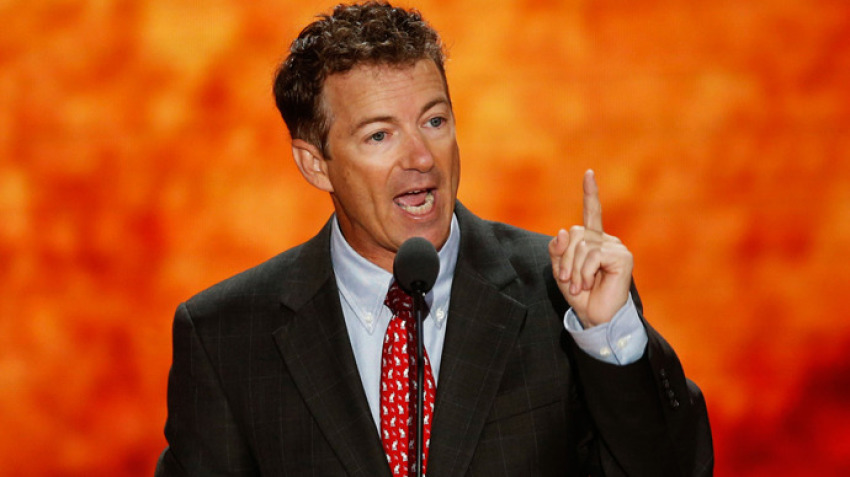Rand Paul at Black Pastor Conference: Democracy Hurts Minorities

WASHINGTON – At the Coalition of African American Pastors Leadership Conference on Thursday, Senator Rand Paul (R- Ky.) supported Martin Luther King Jr.'s definition of a just law and advocated reform of the prison system, drug laws, and child support.
"An unjust law is a law that is passed by a majority that compels a minority but doesn't make binding on itself," Paul declared, reading from Martin Luther King Jr.'s "Letter from a Birmingham Jail." The Senator argued that being a minority "doesn't have anything to do with the color of your skin," and that Evangelical Christians, homeschoolers, and those who believe in traditional marriage or limited constitutional government can face the same discrimination African Americans did and still do.
On racial issues, Paul admitted that America has "come a long way," but he warned that "it's also a mistake to think that injustice is not still happening." He pointed to the war on drugs as an example of present-day discrimination.
"Whites and blacks use drugs at the same proportion, blacks are a much smaller percentage of the population, and yet three-fourths of the prison population is black and Latino," the Senator argued. Noting that federal grants to police departments are "based on arrest and conviction rate," he added that the police target those who cannot defend themselves. "Who do you think it's easier to arrest and convict, a rich person or a poor person?"
Disproportionate targeting of black law-breakers is far from a "one-time injustice," Paul added. A targeted black offender will likely not just go to jail. Every time he applies for a job afterward, he has to check the box to say he's a convicted felon. Some will end up owing between $5,000 and $10,000 in child support upon leaving prison, how can they raise that without a good job?
"We as Republicans need to talk about issues of justice," Senator Paul insisted. He argued that the Republican Party should tackle the issues of drug laws and child support, advocating a fairer system for all Americans.
While the Senator did not attack the idea of representative democracy, he did criticize the unchecked rule of majorities over minorities, a theme discussed in both the Constitution and Federalist Papers. "We should never be for democracy," Paul argued, because majorities do not have the right to enforce their will on minorities. "Jim Crow came out of democracy," he argued, and so did a recent law which allows an American citizen to be indefinitely detained.
"Who gets to decide who's dangerous and who's not?" the Senator asked. He mentioned the theoretical case of an Arab American who emails his cousin in Lebanon. If the United States government suspects his cousin is a terrorist, should it be able to detain him? Paul referred to the 100,000 Japanese Americans sent to internment camps during World War II. "We've done things wrong when we forget what a just law is," he said.
Paul's speech at the Coalition of African American Pastors (CAAP) is far from his first outreach to the black community. In April, he visited Howard University – the first major Republican figure to speak there since General Colin Powell did in 1994. In the Howard address, Paul argued for the repeal of federal mandatory minimum sentencing laws, giving convicted felons the right to vote, and school choice, which he later called "the civil rights issue of our day."
"NO ONE in this country is crafting a better message of uplift for the African American community than Rand Paul," tweeted Kevin W. Cosby, senior pastor at St. Stephen Church in Louisville, Ky. "At least he was trying to provide some answers and solutions," Cosby told local 11News. "He has his finger on the pulse on what I believe are the preeminent issues in the urban community."



























